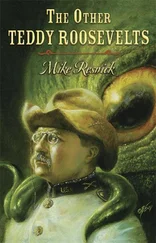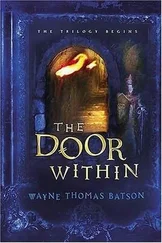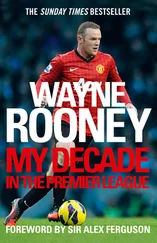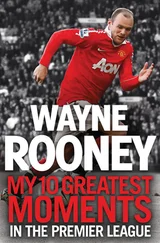But some of it was possibly her fault, e.g., she didn’t truly consider how I might feel about seeing her during Ramadan. And in fact most Americans I had met only thought about my religion in relation to food or alcohol, not about the spiritual areas. I walked around my living room in a rectangular pattern, and the more I thought about this, the more upset I grew, and I decided to write an email. It wasn’t to Rebecca, however:
Mr. Ray, I am responding to Mr. Schrub’s request about a contract he has for me to sign. Can you please tell him I am available to meet him at his earliest convenience?
big in = popular in
warehouse eyes = an example of a metaphor that may not have a directly logical meaning
JOURNAL DATE RECORDED: DECEMBER 13
Rebecca didn’t contact me the remainder of the weekend, and on Monday I avoided her in the office. In the morning I received a response from Mr. Ray that Mr. Schrub could meet me that afternoon for lunch. I was nervous of course, but I also felt confident that my epidemiology proposal would intrigue him.
The restaurant had an Italian name and was in the Financial District, so I walked there. Every table was full of business-people, but it was also very quiet and partially dark even though it was lunchtime.
I waited for Mr. Schrub at the bar and ordered a Coke, and in ten minutes he arrived and the main guard led us to a long table in a private section behind a door. Most of the eaters watched him as we walked past but pretended not to, and I felt their eyes observing me as well, and although attention usually makes me feel uncomfortable, now I felt stronger and sexier.
“I already arranged to do the chef’s menu,” Mr. Schrub told me. “And I made sure your food is vegetarian and otherwise appropriate.”
I reminded myself how much he had given me and that he was considering my needs and how luxurious the room we were in was, with paintings of apples and pears on the wall and a very white tablecloth that was simultaneously rigid and soft, and I told him I appreciated it.
Our waiter was probably the same age as Mr. Schrub, although he looked older. After he gave Mr. Schrub the wine menu, I said, “I have a new idea relating to Kapitoil.”
He put down the menu. “George said you hadn’t come up with anything.”
I felt foolish that Mr. Ray had said that, and it validated my fear that they were less impressed with me now, so I quickly explained how the epidemiology program would work and how my test results were robust so far.
Then, to conclude on another positive, I said, “I believe its applications are something your wife would find especially intriguing, as it can significantly enhance quality of life in the Third World.”
“How would you develop the program if, as you say, you don’t know much about epidemiology?” he asked.
“I would write the concept and reveal the algorithms for Kapitoil in an academic paper and release it to the public.” I turned my eyes to the wallpaper’s complex repeating pattern design of flower petals. “This means we would lose our monopoly on the program and it would no longer be valuable on the oil futures market.”
The waiter returned. “I don’t like to talk business over good food,” Mr. Schrub said quietly to me. “We’ll discuss it after the meal.”
He continued looking at the menu, and after 20 seconds the waiter said, “We have an ’88 Chianti that perfectly complements chef’s menu.”
Mr. Schrub didn’t look up from the menu, but his facial muscles compressed and he said, “If I wanted a recommendation I would have asked for one.”
The waiter’s face was already pale, but it seemed to turn paler. “I apologize, sir,” he said.
Mr. Schrub ordered a different wine I had never heard of, and the waiter said “Excellent choice,” and exited quickly.
Mr. Schrub didn’t discuss the contract at all while we ate, and he didn’t even talk about finance. Instead, he told me about the food we were eating. He and Mrs. Schrub owned a house in Tuscany and they went there every summer for at least a week and bought food at local markets and cooked together. “I recently cooked my first Italian meal,” I said. Then I added, “I taught myself.”
When I ate several gnocchi and grilled zucchini ASAP, he said, “Don’t just gulp it down like a philistine. You have to rotate between the flavors, savor them.” I decelerated my pace and was afraid he would find other flaws in my method of consuming and that it would somehow hurt my chances of convincing him to pursue the epidemiology project. “Break the taste apart into discrete essences — the fresh sweetness of the basil against the earthiness of the gnocchi.” This is why I could never be a restaurant critic, because my only descriptions for food I liked were “delicious” or “flavorful” or simple adjectives in that class, and if you lack specific vocabulary to describe something, it is almost as if you are also restricted from specific thoughts, parallel to how if you do not know a coding command, not only are you prevented from implementing the idea, but you may not even innovate the idea initially.
After we received coffee I thought we were finally going to discuss my idea, but the owner of the restaurant entered and greeted Mr. Schrub.
“You must be a very important young man if you’re lunching with Mr. Schrub,” the owner said after Mr. Schrub introduced me, and I did feel like a VIYM again.
“He’s only as important as I let him be,” Mr. Schrub said. They both laughed, and the owner asked about our meal. Mr. Schrub said the food was excellent. “The waiter was perhaps a little big for his britches. You may want to have a word.”
The owner apologized and said he would speak with him, then left us to drink our coffee. Mr. Schrub didn’t say anything for almost a minute as he breathed on his coffee, and I was afraid of deleting the silence. He was like Barron in that way, because when they were mute I knew they were having thoughts they were withholding but I didn’t know what the thoughts were, except Barron usually made me feel relieved after.
I finally said, “Have you thought about—”
He put up a finger as he poured milk into his cup. After he tasted it and licked his lips and dried them with his napkin and replaced his napkin on his lap, he said, “The epidemiology proposal sounds like a brilliant idea. But before we do something that rash, I think we should investigate further. Why don’t you give my programmers access to the code, they can bring it up with some confidential partners who know more about this subject, and we can figure out if this thing really does have a fighting chance.” He retrieved the contracts from his briefcase. “We’ve also gotten you some more money.”
There was something about his “Why don’t you” sentence that bothered me besides the fact that it was less a question and more a statement. I looked at the contracts that I still didn’t 100 % understand on the rigid white tablecloth. The solitary thing I did understand was the amount of money, which was boldfaced and double the initial amount.
“If it is all right with you, I prefer to update my prototype further before I release it to your programmers,” I said.
He replaced the contracts in his briefcase as efficiently as if he was a printer feeding paper. “I understand,” he said. “You’re a perfectionist. So am I.” He discussed the snowstorm expected next weekend, and we finished our coffee and he refused to permit me to pay for my share and told me to recontact him when I was ready.
I walked slowly back to the office. I replayed his sentence that bothered me, and I deciphered what caused turmoil for me: He used the phrase “my programmers,” but I was also technically one of his programmers. Later in the sentence he said “we can figure out,” so he should have also said “our programmers.” It was a minor word choice, but it indicated something negative to me.
Читать дальше












